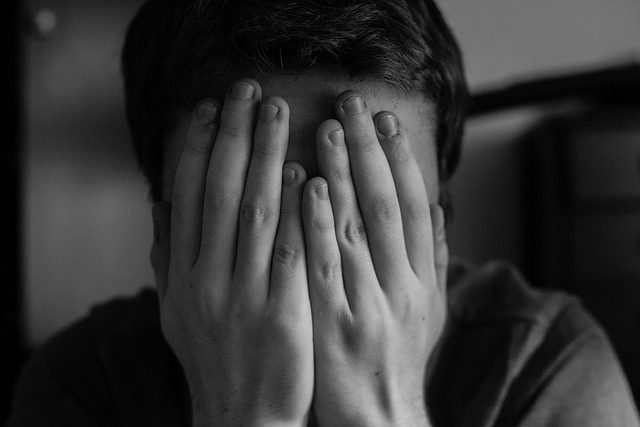
When I first entered the world of white radicalism in the early 2000’s, I noticed something that was fascinating to me. The posturing was almost identical to the world of white evangelicalism I had left behind. People who called themselves the greatest of sinners were as ruthlessly critical of other white people as evangelicals were of non-Christians. In both communities, self-flagellation was the currency by which we legitimized ourselves. In both communities, we were always one inappropriate comment away from falling out of favor with the orthodoxy police. In both communities, we waxed eloquent about the power of grace and the beauty of unconditional love.
Last week, I got to go to an incredible conference in Oakland called (A)Rise in Power. It was one of the first conferences that I’ve attended which was led mostly by black queer Christian women. It was one of the most spiritually potent radical spaces I’ve ever been a part of. There were many awesome aspects of it. The worship and preaching were incredible. The biblical teaching was very stimulating and on-point.
One cool thing that happened was when we broke into different caucus groups. In the white folks room, things began awkwardly as they usually do. But then somebody said can we not do the thing we always do where we beat ourselves up and say all the things we’re supposed to say. She said she was worn out since she gets beat up every day by people questioning her motives and her level of wokeness. So we stopped everything and we prayed together for about 15 minutes.
And it transformed everything. Nobody was posturing. Nobody was performing. Everyone was actually concerned with how everyone else was doing. Because nobody was worried about whether they were doing it right. It was the first time I’ve ever been in a radical white space that wasn’t exhausting itself to death with allyship. It was super relaxing.
It got me thinking about how white people become insufferably obnoxious to work with. I think it’s because we’re so desperately terrified of screwing up that we’re hair-trigger defensive when anybody makes any kind of suggestion that indicates we might not be perfect yet (especially if there’s a racial element to our imperfection). Somehow in that room, all the white neurosis evaporated and we felt safe and loved.
So after we had this incredibly shame-dissipating conversation, we faced a test. Some women of color at our conference did a group performance of a spoken word piece that was super harsh about how they’d been treated by white allies. For most of my past, this would have filled me with shame and resentment. I would have seen it as a demoralizing derailment of everything we were trying to accomplish. But they kept on saying Don’t make this about you. Normally, that’s precisely what I would have done. I would have tried to feel appropriately chastised like a good white evangelical radical for whom reverent shame is the proof that I’m saved.
But somehow I heard it differently this time. I was able to hear their pain because I wasn’t trying to feel bad. Some of what they named were things I’ve done and continue to do; other things were critiques that I love making about other white people. But somehow the absence of shame that had been set up in that morning’s session stayed with me. After they performed, the women were overcome with emotion and wept together. And I wasn’t too self-absorbed and resentful to notice their humanity.
So we threw out our previously scheduled agenda for the afternoon in order to sit together in the mess of that holy derailment. And it made me think about the women who stood around Jesus’ cross and watched him die. I listened as one black woman after another spoke up to say that they completely related to the spoken word piece. They shared how tired and demoralized they were after all the ways they’d been tokenized, patronized, silenced, belittled, and exploited by white people. I don’t know whether they experienced healing in that moment. I hope they did. I simply felt honored to be in a space where they were willing to speak plainly.
White shame is so weird. It says, “I am so terrible” as a means of avoiding genuine introspection. It makes us want to hide from the cross and fast-forward to the resurrection in every conversation that we have. But what God wants us to do is face each other’s crosses. That means that if a black person says I’m doing something hurtful, I don’t argue about it; I thank them for speaking out. I can evaluate on my own what I need to consider in the future. Honestly, I don’t think it requires a Ph.D. in critical race theory to be a non-toxic white person. Just basic Christian humility and compassion.
At the same time, being liberated from shame is not a moral accomplishment; it is purely a gift of God’s grace. And it takes a long time to get to a place where you no longer feel the need to be defensive. That sense of spiritual groundedness is fleeting. But it’s such a wonderful gift to live in for the moments that you have it.
Shame doesn’t help anybody. Neither does tiptoeing around painful truths. The goal is not to speak and act with flawless wokeness all the time. The goal is to respond with the most compassion and humility when other people share their pain, especially when they indicate that we have contributed to it. As long as white allies are trying to earn gold stars, we will be obnoxious, high-maintenance allies. We don’t need gold stars because we’ve got a God who loves us unconditionally. The more that I really live within that truth, the more I’m able to relax and make the changes I need to make to become a less toxic person.
Detoxify your Christianity this Lent with my book How Jesus Saves the World From Us!
Help our ministry NOLA Wesley rebuild flooded Louisiana homes this spring break!












